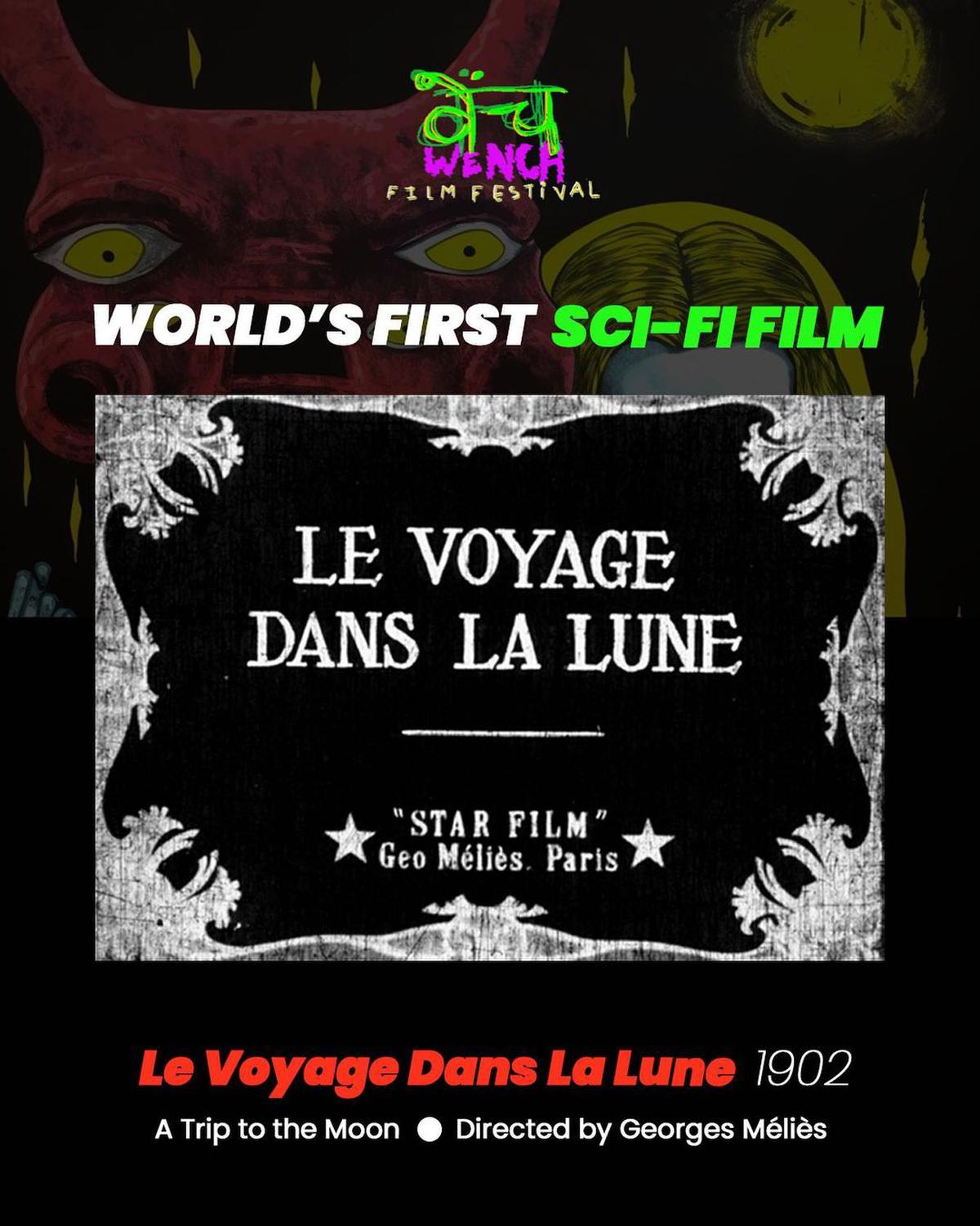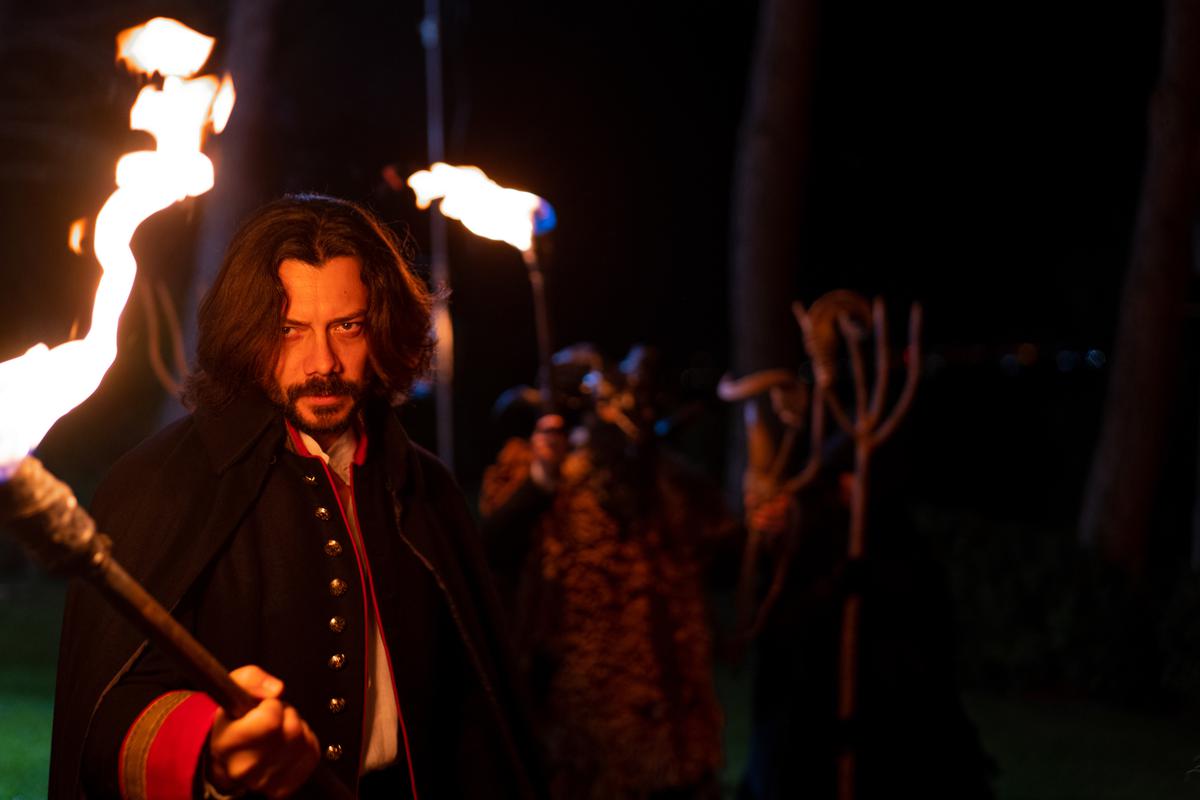[ad_1]
When she was 13 or 14, Sapna Moti Bhavnani watched Carrie (1976), Brian De Palma’s elemental horror classic. In the iconic opening sequence of that film, Sissy Spacek’s socially-awkward schoolgirl gets her first period in the gym shower. A few days after that viewing, Bhavnani got her first period too, in school. “It was insane because I thought I was going to burn the whole school down,” she recalls.
This mingling of cinematic memory and physiological change forged a lifelong obsession with horror. In 2021, Bhavnani, a noted hairstylist and filmmaker, started the Wench Film Festival (‘wench’, meaning ‘girl child’ or ‘country girl’, took on derogatory, sexualised connotations as far back as in the Middle Ages). After two largely online editions through the pandemic, Bhavnani has finally brought out Wench in full bloom: the physical edition is screening 23 films between March 17-19 at Harkat Studios and Veda Factory in Mumbai (there are also online viewings till March 20).
A still from ‘Huesera: The Bone Woman’, opening film at the 2023 Wench Film Festival
Though Wench started out as a spotlight for women directors, Bhavnani has been persistently opening up the ambit. The latest edition is screening Indian and International films in the horror, sci-fi and fantasy genres, and is inclusive of BIPOC (Black, Indigenous, People of Color), non-binary and LGBTQ+ women filmmakers. It also includes two men directors. “I am anti-label,” Bhavnani insists. “Last year we had a men’s section but this year we are not segregating. They are competing in the same category.”
Also Read: ‘Sindhustan’ and the transmission of trauma
Beyond films, there’s a wealth of horror-themed mixers, performances and gnarly sideshows Bhavnani has whipped up. Last year, she organised a vampire wedding at the end of a screening (“I asked everyone to come dressed as guests”). This time around, she’s arranged a masterclass by horror veteran Vikram Bhatt; a dance poetry act accompanying the film Spiralling With Desire; a live-score screening of A Trip to the Moon (1902) by multi-instrumentalist Sidd Coutto.

Sidd Coutto is live-scoring Georges Méliès’s epochal ‘A Trip to the Moon’
Later in October, she’ll have H6LLB6ND6R (a New York-based metal band who also made the 2021 horror film Hellbender) open Disco Blood Bath, Wench’s flagship Halloween showcase. It’s not half of what Bhavnani envisions for the future. “I wish we could open with an exorcism next time. Or invite some ‘out’ witches (women breaking stigma around witchcraft). I did try to arrange it online so it’s a safe space but they declined.”
Vivek Rangachari, a Bollywood producer and business and development head at Wench, agrees there’s a dearth of Fantasia-like genre film festivals in India. The reasons are plenty — a desolate indie scene, limited exhibition space, a lack of a sustainable fan culture around homegrown horror. “Horror festivals are huge in the West,” Vivek says. “It’s a genre that fetches the highest ROIs — American low-budget banner Blumhouse being a primary example. By contrast, Indian horror is yet to break out that wide.”
“There are films like Bulbbul and Tumbbad (also screening at Wench) that made a change,” Sapna adds. “Also some slapstick horror comedies. But to a large part of the world, India is still the Ramsays.”

A still from Alice Wadding’s ‘The Nightmare’, closing film at Wench
Megha Ramaswamy’s Lalanna’s Song (a surrealist head-spinner) and Arati Kadav’s The Astronaut and his Parrot (a sci-fi short starring Ali Fazal) are the Indian highlights from Wench. Bhavnani’s own film, My Dog Is Sick, an experimental horror-fantasy, also premiered at Wench, but out of competition. Meanwhile, her third script—titled A Bearlike Man—is part of the Sundance Collab (Vivek is producing it). Both films, Bhavnani lets on, incorporate hair as a horror element — a confluence of her two big preoccupations in life.
“I was made to do this,” she laughs.
[ad_2]
Source link


